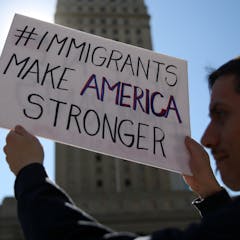
Articles on Investment
Displaying 61 - 80 of 260 articles

Cutting carbon use depends on changing social norms and behaviour as much as technology.

Adam Neumann both controlled and managed the co-working company he founded in 2011. A finance scholar explains why that can be a serious problem in venture capital-backed startups.

Research shows how decision making by investors is affected by the one-hour clock change.

WeWork’s uncertain future reflects how investors have wised up to the hype around Silicon Valley start ups.

Contrary to the belief that resource strained parents invest in academically stronger children, studies show that Ethiopian parents tend to invest more in the child with lower academic capabilities.

A call to make our cities more resilient to climate change could drive one of the largest new infrastructure builds in history.

Germany’s rising inequality shows what happens when consumers and companies don’t widely embrace innovation.

Michael Burry was right about the bubble that caused the Global Financial Crisis. He’s wrong about the next bubble being passive investment.

It has undoubtedly been a game-changer for entrepreneurial finance, but researchers are discovering new inequalities and risks for investors.

The only possible solution to the crisis, socialisation, is the one that the current government will not consider.

A group of America’s most powerful CEOs said companies should no longer merely focus on maximizing shareholder wealth. A business professor explains why it’s not a big deal.

Investments only makes sense if there are markets for the things those investments will produce. It isn’t clear that there are.

A growing number of investors, policymakers and others say the US economy may be at risk of spiraling downward. A finance professor explains how to ride it out.

While the US is a nation of immigrants, China is not. That’s a huge competitive advantage when doing business in emerging markets.

Gender lens analysis identifies risks and opportunities early. It is catching on.

Ten years ago, almost a third of self-employed people in the UK contributed to pension schemes. That figure has dropped dramatically.

Democrats such as Rep. Ocasio-Cortez and Sen. Markey are proposing an ambitious decarbonization plan that critics are calling unaffordable. A green economist explains how the US could pay for it.

The Fed abruptly ended two years of aggressive interest rate hikes, signaling the longest economic expansion on record may be coming to a close.

The index fund revolutionized investing for millions. Its founder died on Jan. 16.

There are a lot of similarities between the state of tech companies today and when the 2000 dot-com bubble burst.





